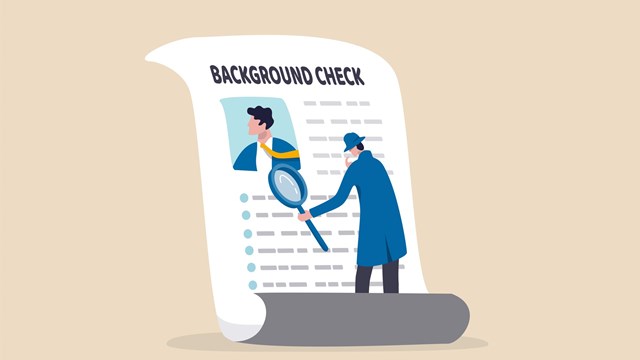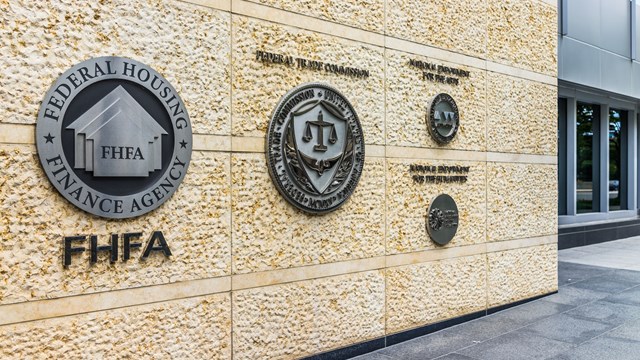Charles Dickens once said, “It is a pleasant world we live in, sir, a very pleasant world. There are bad people in it, Mr. Richard, but if there were no bad people, there would be no good lawyers.”
Ah Mr. Dickens speaks the truth. Love ‘em or hate ‘em, lawyers are necessary. Whether a massive condo development or a pocket-sized co-op, buildings need a multitude of experienced, competent professionals on their side in order to remain solvent, harmonious and on the right side of the law. Those pros include a property manager, an accountant, or similar financial adviser, and, of course, an attorney. While all three are obviously vital, attorneys play a particularly important role in keeping litigation at bay and making sure it goes well for the building when the courtroom is unavoidable.
“The attorney is on equal or greater grounds with the management company,” says Peter Lehr, director of management at Kaled Management in Queens. “He should be watching over the accountant and the management company and making sure they are doing things the right way.”
Believe it or not, finding and developing a successful relationship with an attorney is similar to finding the love of your life. That might sound humorous, but it’s quite accurate. Finding the Right One
When you’re searching for someone to share your life with, friends and family will often try to set you up with someone they know. Why? Your friend or family already knows you, your personality and your situation, and they have a vested interest in pairing you up with the right person. While this has the makings of a mismatched relationship, recommendations from someone familiar with you are typically successful.
“Most associations hear about attorneys by word of mouth,” says Stuart Halper of Stuart Halper & Associates in Briarcliff Manor, who has the unique perspective of being both a property manager and an attorney. “As an attorney, we have to be good at what we do. Be fair and treat the client’s properly is how you grow your practice.”
Finding What You Need
Writing perfect personal ads is about telling those who are looking for a partner what you want and don’t want from someone in a relationship. For example, perhaps you want someone to accompany you to the movies and talk about them afterward. If someone responds and states that they dislike the cinema and know nothing about feature flicks, they probably didn’t have you at hello. On the other hand, someone who responds with ‘I’ll make you an offer you can’t refuse,” from “The Godfather” or quotes the infamous scene from “When Harry Met Sally” will probably sweep you off your feet.
“For example, if an association has an arrears problem, do you want an attorney who is just a general counsel or do you want one who specializes in arrears?” says Lehr. “What do you need? Do you have a lot of work going on in the building? Or need help preparing ADA documents? Do you have residents fighting with each other and need help with house rule infractions? You need an attorney who can see through all the complaints and steer residents to a resolution.”
Examining the Counsel’s Role
The most common areas for an attorney to get involved in board business usually deal with the drafting and writing of contracts and rules and regulations, according to Marc Schneider, the managing partner of the law firm of Schneider Mitola, LLP, with offices in Garden City and Manhattan. First and foremost, the board’s attorney should be able to interpret the governing documents on matters such as repairs, leases, board qualifications, voting rights, etc. Secondly, it is imperative that an attorney be involved in drafting contracts.
“It is extremely important that community association boards consult with their counsel to ensure that contracts that the association enters into contain the proper protections for the association,” says Schneider.
“For example, it is important that contracts require the contractor to not only provide proof of the existence of certain insurance, but also that the contractor is required to name the association and its managing agent as an additional insured. It is not enough to merely have a certificate of insurance provided to the association,” he says.
“In addition, the contract must require an indemnification provision which requires the contractor to indemnify and defend the association for claims relating to the contractor’s work. Without these two provisions, the association will be relegated to handling any claims through the association’s insurance instead of handing over the defense to the contractor’s insurance carrier. Additionally, the association’s attorney must ensure that provisions such as payment amounts and time for payments as well as time for completion of the project are covered, among many other provisions,” Schneider says.
Often times, he adds, contracts prepared by the contractors themselves merely protect the contractor. The cost for an attorney providing these services is minimal compared to what would be incurred should a proper contract not be in place, he says. The attorney is also a crucial participant when boards seek to amend their governing documents or refinance their underlying mortgage.
Another important area of concern these days is handling shareholder defaults and arrears, Schneider says. Counsel should also be consulted if a board considers terminating one’s proprietary lease or conducting an eviction. Failure to follow proper legal procedure could lead to serious problems and additional litigation expense, he says.
Personality Talks
Even if an attorney looks good on paper, there still needs to be compatibility between the parties—managers, the board and attorneys. “The board should look for how good the attorney is and if his or her personality meshes with the personality of the association,” says Halper.
The odds of meeting the perfect person with the first match or the first kiss are low, and you’ll probably have to kiss many frogs before you find your Prince Charming, Esq.
Alex Kuffel, president of Pride Property Management in New York City, urges association boards to be careful of the dreaded attorney-in-sheep’s clothing.
“Having an attorney available for contract negotiations and vendor contracts is a good idea, but not if they're billing it by the hour and stretch it out as much as possible,” he says.
To prevent unnecessary billings, Kuffel says that in his attorney relationships, he makes sure to speak directly and tell the other about his expectations. “I don’t ask open questions—such as ‘what would you do,’” he says. “I am in the middle of a situation now where we’ve been in litigation for years. The core source of the grievance is the attorneys. The real meat and potatoes of the business deal aren’t being discussed, while the co-op is being held hostage and can’t move forward.”
Can’t We All Get Along?
Once you meet someone of interest, it’s important to do your due diligence. That might mean checking around and making sure their background is what they say it is.
“There are some cases where you want an attorney to give you peace of mind, to let you know what the right way to go is and bless what you’re doing,” says Lehr. “But common sense dictates when you shouldn’t or shouldn't be calling the attorney.”
Halper agrees. “For example, I have one board that called the attorney because they had a water bill that was incorrect and they wanted answers, but that should be a management issue,” he says. “They step over the line ask the lawyer things the manager should be doing, but they don’t realize they’ll get billed for that.”
“If we went to the attorney for something we should be doing, we’d be fired,” says Kuffel.
In a building association, the best course of action for managers, boards and residents alike is usually to solve differences without involving an attorney at all. However, the reality is that even in the best of buildings, there are problems. Residents get annoyed with each other and, although some problems get resolved, some spiral out of control and end up in litigation. When that happens, it's time to get lawyered up—maybe.
“Generally a situation like that would go through the insurance company,” says Lehr. “They look at coverage first and assign coverage or allow the of association’s attorney to handle the case.”
One area that might not need an attorney’s hand is the writing or drafting of board minutes, says Schneider. However, if a legal issue is being discussed and voted upon it would be wise to consult the board’s counsel.
Great Expectations
In a relationship, there are expectations on both sides. Who is going to call who? Who makes the first move? There are the same expectations in an attorney-board/management relationship.
Boards need to make the right decision in their hiring. “First and foremost,” says Schneider, “it is important that a board engage an attorney who is well-versed and experienced in representing community associations. Just as a person who suffers a heart attack would not go see a podiatrist, a co-op or condominium matter should not be handled by a general practitioner or a personal injury attorney.
“Boards should also listen carefully to the advice of their attorney and not simply seek the answers they are looking for. It is important to get the right answer which doesn’t always agree with what the client is looking to hear.”
Happy Endings
When you enter into a partnership, collaboration or relationship, you hope that it’s a long and healthy one. “When you go into the safari, you want a guide because there are dangerous animals all over the place,” says Kuffel. “Attorneys are your guide and make sure you’re on the right path.”
However, sometimes it’s necessary to admit that the relationship isn’t working, and you need to sever ties and move on to a new and healthier relationship. “For example, there was a lawsuit brought against me because a unit owner brought in a dog that was going to exceed the weight limit according to the rules, and I stopped them,” says Kuffel. “However, the insurance company felt that the attorney who was going to represent me wasn’t deemed qualified to defend me, so we found another. It’s in the attorney’s best interest to make sure that they involve a lot of time because they work on time, but time isn’t always in everyone’s best interest.”
Lehr says that the property management company often inherits attorneys from the previous management company, but that doesn’t guarantee a successful relationship. “So we’ll give the board a list of new ones,” he says. “They will interview them. They work for the board and we all have to work together.”
Schneider also cautions that in this age of instant gratification, boards must remember that legal matters take time.
“The biggest issue faced by attorneys (especially in today’s day and age where everything is instant) is that legal matters take time and not every answer can be instant,” he says, “especially when there is a lawsuit and the courts are involved. Fortunately, many board members have never been a party to a lawsuit. As a result, it is often difficult for board members to understand the time it takes for certain things to happen in cases that are in court.”
Timing aside, a successful building not only means having all of the equipment working properly and residents who are happy, but it means that everyone responsible for making all of that happen works together as well. If all goes well, the property manager, board and attorney will have formed a great working relationship.
Halper fondly remembers one such special relationship with one of his first management clients. “When one of our first management clients died, my partner was asked to give the eulogy—that’s how close we were to this woman,” says Halper. “She was 86 years old. You develop special relationships with people. That’s what you hope for.”
As many punchlines as there are about lawyers, finding the right one for your community is no joke. The attorney-board relationship is based in business and the letter of the law, but over time and with equal efforts from all involved, it can become a mutually beneficial partnership.
Lisa Iannucci is a freelance writer and frequent contributor to The Cooperator.>/







Leave a Comment